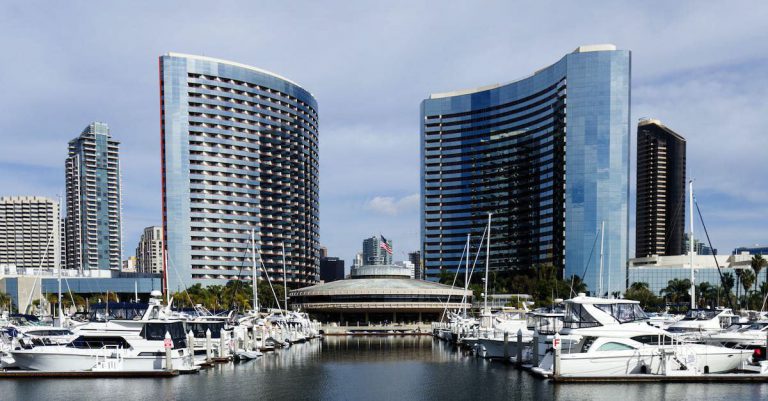If you’re short on time, here’s a quick answer to your question: ‘Hotel Rwanda’ is a powerful film based on the true story of Paul Rusesabagina, a hotel manager who saved over a thousand Tutsi refugees during the Rwandan Genocide.
In this article, we will delve into the historical context, explore the movie’s plot and characters, analyze the director’s approach and filmmaking techniques, review its reception and impact, and discuss any associated controversies and criticisms. We aim to provide a comprehensive perspective on the film’s significance, both in cinematic history and in raising global awareness about the Rwandan Genocide.
Introduction of Hotel Rwanda
“Hotel Rwanda” is a critically acclaimed film that tells the story of Paul Rusesabagina, a hotel manager who saved the lives of more than a thousand refugees during the Rwandan Genocide. The movie depicts the horrific events of the genocide and the heroism of Rusesabagina, who used his position and negotiation skills to shelter Tutsi refugees at the Hôtel des Mille Collines in Kigali, the capital city of Rwanda.
Brief description of ‘Hotel Rwanda’
The film is a powerful portrayal of the atrocities that occurred in Rwanda in 1994. The conflict was between the Tutsi and Hutu ethnic groups and resulted in the deaths of nearly one million people. The movie shows the brutality and violence that took place during the genocide, including the murders of innocent people, the displacement of families, and the destruction of homes and communities.
Introduction to Paul Rusesabagina and his role in the movie
Paul Rusesabagina is the central figure in the film and is portrayed by actor Don Cheadle. Rusesabagina was a real-life hotel manager who provided refuge for Tutsi refugees during the genocide. He used his connections and negotiation skills to protect the refugees and keep them safe from the Hutu militia that was hunting them down.
The film shows Rusesabagina’s bravery and selflessness as he risks his own life to protect others. His story is a testament to the courage and resilience of the human spirit in the face of unimaginable tragedy.
Background
The film “Hotel Rwanda” is a powerful depiction of the Rwandan Genocide, which occurred in 1994. The movie tells the story of Paul Rusesabagina, a hotel manager who used his position and influence to protect refugees during the genocide. To understand the film more deeply, it is important to have an understanding of the historical context, ethnic tensions, and political climate that led up to the events depicted in the movie.
Historical context: The Rwandan Genocide
The Rwandan Genocide was a mass slaughter of Tutsi and moderate Hutu people in Rwanda by members of the Hutu majority government. The genocide occurred over a period of 100 days, from April to July 1994, and resulted in the deaths of an estimated 800,000 people. The conflict stemmed from long-standing ethnic tensions between the majority Hutu and minority Tutsi populations.
Ethnic tensions between Hutus and Tutsis
The Tutsi were historically seen as the ruling class in Rwanda, but in the 1950s, the Belgian colonial government introduced identity cards that identified individuals as either Tutsi or Hutu. This further exacerbated the ethnic divide, and in 1959, a Hutu revolution overthrew the Tutsi monarchy. Tutsis fled the country, and many were killed. In 1990, Tutsi exiles formed the Rwandan Patriotic Front (RPF) and invaded Rwanda from Uganda, igniting a civil war that lasted until 1993.
Overview of the political climate leading up to the events depicted in the film
In August 1993, the Arusha Accords were signed between the Rwandan government and the RPF, calling for a power-sharing government and an end to the civil war. However, Hutu extremists opposed the agreement, and tensions continued to escalate. On April 6, 1994, Rwandan President Juvénal Habyarimana’s plane was shot down, killing him and the president of Burundi. This event triggered the genocide, as Hutu extremists began targeting Tutsis and moderate Hutus. The Rwandan government and military played a significant role in the genocide, with many officials and soldiers actively participating in the killings.
Summary of the Movie
If you haven’t seen the movie ‘Hotel Rwanda,’ it is a powerful and moving film that tells the story of Paul Rusesabagina, the manager of the Hotel des Mille Collines in Kigali, Rwanda. The movie is based on a true story and is set during the Rwandan genocide in 1994.
Paul’s role as the manager of the Hotel des Mille Collines
Paul Rusesabagina, played by Don Cheadle, is a hotel manager who is known for his charm and his ability to please his guests. He is married to Tatiana, played by Sophie Okonedo, and they have three children. Paul is a Hutu, but he is married to a Tutsi, which puts him in a precarious position when the genocide begins.
The onset of the genocide and its impact on Paul’s life
When the genocide begins, Paul’s life is turned upside down. He is forced to watch as his friends and neighbors are killed. The Hutu government is responsible for the genocide, and they are targeting Tutsis and moderate Hutus. Paul uses his position at the hotel to try to protect as many people as he can. He pleads with the United Nations to intervene, but they are slow to act.
The transformation of the hotel into a refuge
As the violence escalates, Paul transforms the hotel into a refuge for Tutsis and moderate Hutus. He uses his charm and his connections to keep the refugees safe. He provides them with food and shelter, and he even bribes the Hutu officials to keep them from attacking the hotel. At one point, Paul even risks his life to save a group of refugees who are about to be killed.
Struggles faced by Paul and the refugees
Throughout the movie, Paul and the refugees face many struggles. They struggle to stay hidden from the government forces, and they struggle to find food and water. They also struggle with the fear and the trauma that comes with living through a genocide. Despite these struggles, Paul remains determined to keep the refugees safe.
Key Characters and Performances
In-depth look at Paul Rusesabagina and his family
One of the central characters in the film ‘Hotel Rwanda’ is Paul Rusesabagina, a hotel manager who saved the lives of over 1,200 people during the Rwandan Genocide in 1994. Paul was able to use his connections and resources to shelter Tutsi refugees at the hotel he managed, the Hotel des Mille Collines.
In the film, we see Paul’s dedication to his family as well. He is a husband and father of three children, and he goes to great lengths to protect them during the genocide. Despite the chaos and danger, he manages to keep his family safe and together.
Other significant characters in the movie
Aside from Paul Rusesabagina, there are several other significant characters in the movie. These include:
- Colonel Oliver, played by Nick Nolte, who is a UN peacekeeper tasked with protecting civilians
- George Rutaganda, played by Hakeem Kae-Kazim, who is a Hutu extremist responsible for the mass killings of Tutsis
- Tatiana Rusesabagina, played by Sophie Okonedo, who is Paul’s wife and a strong supporter of his efforts to save lives
Performance analysis of the actors, including Don Cheadle and Sophie Okonedo
Don Cheadle gives a powerful performance as Paul Rusesabagina, capturing his quiet strength and determination to protect others. Sophie Okonedo also shines in her role as Tatiana Rusesabagina, bringing depth and emotion to the character.
The supporting cast also delivers solid performances, particularly Nick Nolte as Colonel Oliver. Hakeem Kae-Kazim is chilling as the villainous George Rutaganda.
Director’s Perspective and Filmmaking
The film “Hotel Rwanda” was directed by Terry George, who was inspired by the story of Paul Rusesabagina, a Rwandan hotel manager who saved the lives of over a thousand refugees during the Rwandan genocide in 1994. George’s approach to portraying this tragic event was both poignant and powerful, as he sought to capture the harrowing experiences of the Rwandan people during this dark period in their history.
Use of Real Locations and Sets
One of the key elements of George’s approach was his use of real locations and sets. The film was shot on location in Kigali, Rwanda, which added an authentic feel to the movie. The hotel used in the film was the actual hotel where Rusesabagina worked during the genocide, which helped to create a sense of realism and immersion for the audience. By using real locations and sets, George was able to convey the gravity of the situation and highlight the resilience of the Rwandan people.
Cinematography and Music
Another important aspect of the film was its cinematography and music. The cinematography was used to great effect, as George employed a variety of techniques to convey the mood and emotion of each scene. For example, he used close-ups to show the intense emotions of the characters and wide shots to highlight the chaos and destruction of the genocide. The music was also carefully chosen to enhance the emotional impact of the film. The score was composed by Andrea Guerra, who used a combination of traditional Rwandan music and orchestral arrangements to create a powerful and evocative soundtrack.
Reception and Impact
Critical and audience reception at the time of release
When the film ‘Hotel Rwanda’ was released in 2004, it received widespread critical acclaim for its portrayal of the Rwandan Genocide and the heroism of Paul Rusesabagina. The film was praised for its emotional impact and its ability to bring attention to the genocide that had been largely ignored by the international community.
The film also received positive audience reception, with many viewers being moved by the story and the performance of Don Cheadle, who portrayed Rusesabagina. Some critics and viewers, however, criticized the film for its simplification of the complex political situation in Rwanda at the time.
Awards and recognitions
‘Hotel Rwanda’ was nominated for three Academy Awards, including Best Actor for Don Cheadle, Best Original Screenplay, and Best Supporting Actress for Sophie Okonedo. The film also received numerous other awards and nominations, including a Golden Globe nomination for Best Actor in a Drama for Cheadle.
The film’s director, Terry George, and writer, Keir Pearson, were also recognized for their work, receiving nominations for Best Director and Best Original Screenplay, respectively, from various award-giving bodies.
Impact on raising global awareness about the Rwandan Genocide
‘Hotel Rwanda’ played an important role in raising global awareness about the Rwandan Genocide, which had previously received little attention from the international community. The film helped to humanize the victims of the genocide and shed light on the heroism of individuals like Rusesabagina, who risked their lives to save others.
The film also inspired activism and advocacy on behalf of the victims of the genocide. Many organizations, such as the Hotel Rwanda Rusesabagina Foundation, were created in response to the film and its message of hope and resilience.
Controversies and Criticisms
Discrepancies between the movie and real events
Although “Hotel Rwanda” is based on the true story of Paul Rusesabagina and his efforts to save refugees during the Rwandan Genocide, the movie has faced criticism for not accurately depicting certain events. For example, some survivors have pointed out that the hotel was not as luxurious as it is portrayed in the movie and that the refugees were not as well-fed. Additionally, some have criticized the portrayal of the UN peacekeepers as passive and ineffective, arguing that they did more to help than the movie suggests.
Criticisms from survivors and the Rwandan community
Some survivors of the genocide and members of the Rwandan community have criticized “Hotel Rwanda” for focusing too much on the story of Paul Rusesabagina, who is portrayed as a hero in the movie, and not enough on the experiences of the Rwandan people. Critics have argued that the movie erases the agency of Rwandans who fought against the genocide and that it perpetuates the idea that Westerners are needed to save Africans.
Response from the filmmakers
The filmmakers of “Hotel Rwanda” have defended the accuracy of the movie, arguing that it is not a documentary but a dramatization of true events. They have also pointed out that the movie has helped to bring attention to the Rwandan Genocide and to Paul Rusesabagina’s story. However, the filmmakers have also acknowledged some of the criticisms and have expressed regret for any inaccuracies or misrepresentations in the movie. They have encouraged viewers to research the genocide and to learn more about the experiences of the Rwandan people.
Conclusion
The film ‘Hotel Rwanda’ is more than just an artistic piece; it’s a mirror into one of the darkest periods in human history. With its intricate storytelling, strong performances, and intentional cinematography, it brings the horrors of the Rwandan Genocide to a global audience.
While there are criticisms and controversies surrounding its narrative accuracy, its impact on raising awareness about the event cannot be understated. It serves as a poignant reminder of the extremes of human capacity — for both evil and for good, as exemplified by Paul Rusesabagina. The film’s narrative allows us to better understand the complexities of the genocide, while also highlighting the importance of unity, compassion, and resilience in the face of overwhelming adversity.






